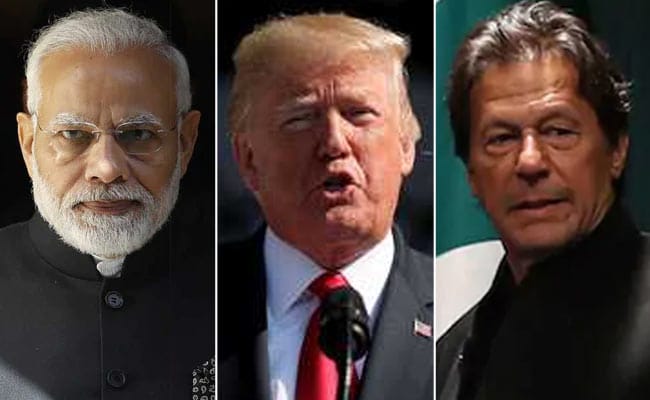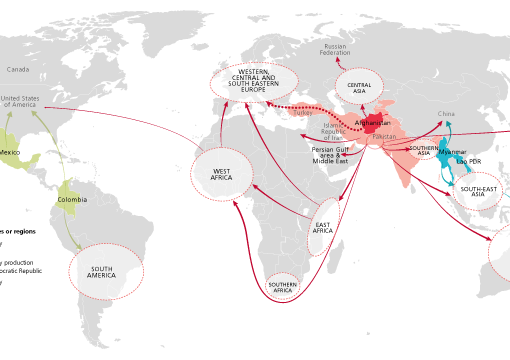By Prasad Nallapati
With dust settling down after a weeklong blitzkrieg at the UN, it is time for a proper assessment of the net result of the efforts by Pakistan and India to get their voice heard and acknowledged by the world community.
Both the Prime Ministers returned home claiming success, but there is no discernible advantage gained by either of them. Only three countries, Turkey, Malaysia and China, spoke in favour of Pakistan on the Kashmir issue in their speeches at the General Assembly. Outside the UN, President Donald Trump remained noncommittal despite the two sides pressing him hard to take sides. He just reiterated the stated American policy of mediation if the two sides ask him to do so. The OIC Foreign Ministers issued a statement out of diplomatic nicety to Pakistan but no one takes it seriously including many of its own members.
India too did not find any vocal support for branding Pakistan a “terrorist state”. Trump belittled it by stating that Iranian terrorism is more serious. He stated that Prime Minister Modi’s references to terrorism at the Houston gathering, “Howdy, Modi”, are “aggressive”. Replying to a reporter’s question on Pakistan being the epicenter of terrorism, he stated that Modi is taking care of it. To another question, he said that Modi assured him that the situation in Kashmir is under control. He wanted the two Prime Ministers to sit and settle the issue.
No one has interest in an issue that defies a solution other than a bilateral compromise. India’s withdrawal of `special status’ to its state of Jammu and Kashmir (J&K) has not changed the international opinion, although there are concerns over continued restrictions causing hardship to people there.
Pakistani establishment is particularly unhappy with the muted responses of the Gulf nations, which it attributes to their growing economic relations with India. With over $100 bn annual trade, India is a vital economic partner to the Gulf countries. Saudi Arabia is India’s fourth-largest trading partner with bilateral trade reaching $28bn. The Kingdom is home to more than 2.7 million Indian expatriates. Saudi energy group, Aramco, is investing $ 75 bn to acquire a 20 percent stake in Reliance Industries Limited’s (RIL) oil refinery. Saudi Arabia and the UAE are jointly investing $ 60 bn in another mega refinery in Indian state of Maharashtra. India-UAE annual bilateral trade stands at $55bn, with Indians being the largest foreign investors in Dubai’s real estate market. Nearly 30 percent of the UAE’s total population comprises of Indians.
Economic factors are thus significant, but they do not fully explain the scale of the Gulf support to India.
Efforts to communalize Kashmir issue failed
Pakistan has tried from its inception to communalize Kashmir issue pointing to Muslim majority of the valley region of the state. But J&K represented similar multi-religious and multi-cultural population-mix of India. Hindus dominated Jammu sector while Buddhists had outnumbered others in Ladakh. Obviously, international community including Muslim countries saw it more a border “land” dispute.
To give a little historical perspective, Muslim `nobles’ of the united British India had invented a `two-nation’ theory to argue that Hindus and Muslims constitute separate nations and cannot live together. While they succeeded in forcing the British to carve a Pakistan out of India as a home for sub-continental Muslims, they failed to convince majority of their co-religionists the viability of the `two-nation’ concept. Pastuns and Baluchis initially resisted joining Pakistan. More Muslims opted to remain in India than moving to West Pakistan while the eastern part of Pakistan soon got separated to form a new country, Bangladesh, based on their separate linguistic identity.
Kashmiris too shunned Pakistani overtures and had taken a decisive move, under the leadership of their popular leader Sheikh Abdullah, to join India in 1948 as Islamabad unleashed its soldiers in the garb of Pathan tribal raiders who ended up raping nuns and destroying properties while occupying part of the J&K state.
Alliances for military aggrandizement
With the two-nation theory based on religion thus splintering, Pakistan was faced with a serious identity crisis. It had to retrieve whatever is left to prove its existence. They hence turned to seek alliances that could help build its military strength to take on India.
Joining cold-war western military alliances, SEATO and CENTO, in 1950s and 60s; merging its identity with Gulf Sheikhdoms in 70s and 80s; and now with China are part of these efforts. In an essayin the News, `Our search for a forgotten identity’, Pakistani columnist Kamila Hyat wrote, “There has even been doubt as to where we are located on the globe. Notably under the late Gen. Zia-ul-Haq an attempt was made to transport ourselves from South Asia to the Middle East.”
The Gulf states however saw Pakistan more a supplier of `mercenary’ military forces to secure their regimes and installations. Recent Pakistani refusal to send forces to join their fight in Yemen diminished its utility. The US-led forces on the other hand found Pakistan only useful to monitor and undermine Communist regimes of the erstwhile Soviet Union and China.
These alliances, however, helped Pakistan to remain stable, financially as well as geographically. Nothing more than that.
Embracing Islamist radical groups
Having thus failed to achieve its objectives from these alliances, Pakistan turned to Islamist radical groups as cheaper and deniable weapon to “bleed” India. Pakistan gained extraordinary experience of raising and running these groups for the US and Saudi Arabia in their fight against the Soviet forces in Afghanistan.
Former Pakistani Army Chief General Zia-ul-Haq gave form to Zulfiqar Ali Bhutto’s “thousand years war” with ‘bleeding India through a thousand cuts’ doctrine using covert and low-intensity warfare. The army perfected this doctrine first using terrorism in Punjab insurgency and later in Kashmir. Rawalpindi was also emboldened to implement similar strategy to gain control over Afghanistan through Taliban and other Arab veterans of the Afghan war, who later formed the dreaded Al Qaida under the leadership of Osama bin Laden.
Pakistan has thus been completely transformed itself to a state that used `terrorism’ as a `veritable’ arm of its military forces to further its foreign and security policies.
The US and the Gulf states, who had so far ignored these Pakistani `misadventures’, got their shock as Al Qaida targeted Saudi regime and launched 9/11 attacks on American cities. Pakistan got away from paying a heavy price through ‘tactical cooperation” in fighting terrorism but remained a pain in their neck.
About 80 Pakistani nationals are currently in prison in Saudi Arabia charged with terror or security related offences, reports the British paper Independent. “Several prominent Saudi politicians, including Abdullah Al-Sadoun, chair of the security committee of the country’s Shura Council, have called for tougher screening processes for Pakistani nationals before they are allowed entry into the country.”
There is hardly any sympathy left for Pakistan in the Western countries or in the Gulf although they would not admit it openly for obvious reasons. This explains Pakistan’s inability to garner support of the international community against India’s abrogation of the provisions of the Article 370 of its Constitution and its continued restrictions in Jammu and Kashmir.
There is Chance for Peace! Choice is with Pakistan
Will this lead to a review and change in Pakistani policy of using terrorism for promoting its foreign policy objectives? There is no sign of it as yet.
Now, the choice is with Islamabad. Either it continues that path and put itself in peril or take a bold decision to do a course correction for a lasting peace and bright future. The message from the international community is loud and clear.
(Prasad Nallapati is President of Hyderabad-based Centre for Asia-Africa Policy Research and former Additional Secretary to Govt of India)




